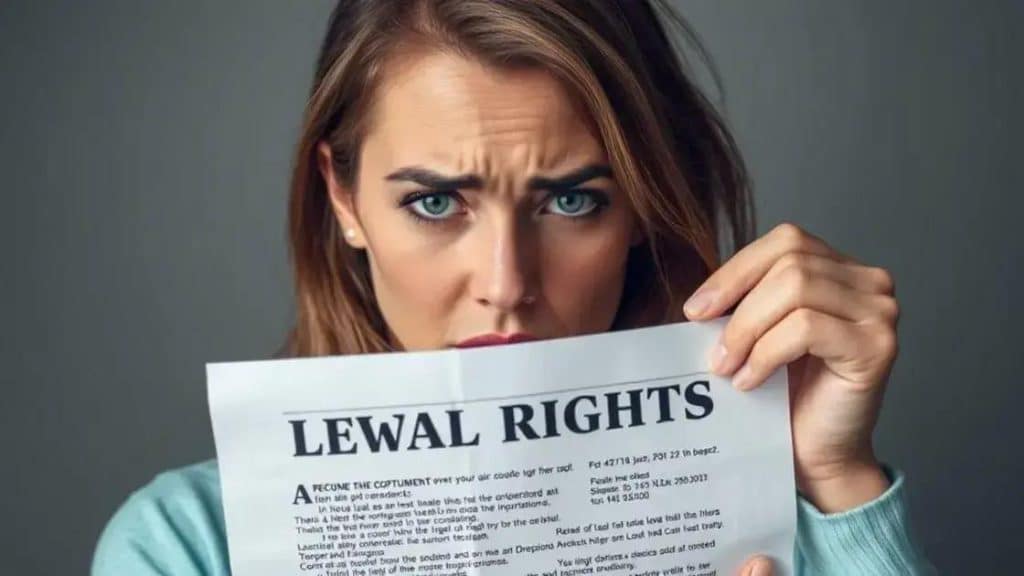Yeah legal rights protection: ensuring your rights are safeguarded

Legal rights protection ensures individuals can assert their rights and access support through government agencies, nonprofit organizations, and legal resources to address violations effectively.
Yeah legal rights protection is more significant than most people realize. It impacts our daily lives in countless ways. Have you ever considered how well your rights are safeguarded?
Understanding legal rights and protection
Understanding legal rights and protection is essential for everyone. Many individuals are unaware of their rights and the protections available to them. Legal rights encompass a wide range of guarantees that protect individuals in various situations. From basic human rights to consumer rights, knowledge of these rights is vital.
What Are Legal Rights?
Legal rights are entitlements that individuals possess under the law. These rights allow individuals to act within the framework of the legal system and to expect certain protections from it. Important legal rights include:
- The right to free speech
- The right to privacy
- The right to due process
- The right to equality before the law
These rights ensure that individuals are treated fairly and justly, allowing them to live without fear of unlawful actions.
Why Legal Protection Matters
Legal protection serves as a safeguard against violations of these rights. It helps ensure that individuals can seek justice and remedies when their rights are infringed upon. For example, if someone is discriminated against in the workplace, legal protections empower them to file complaints and seek justice.
Additionally, understanding legal rights allows individuals to advocate for themselves and others. When people know their rights, they are more likely to stand up against injustices and seek help when needed. Awareness of legal rights protection can change lives.
In summary, being informed about both legal rights and protections is key to enjoying a fair and just society. Without this knowledge, individuals may suffer in silence without fully understanding their options.
The importance of legal rights protection
The importance of legal rights protection cannot be overstated. It serves as a vital foundation in every society, ensuring that individuals have their basic rights safeguarded. Without effective legal protections, people would face potential injustices in their daily lives.
Why Legal Rights Protection is Essential
Legal rights protection is key to maintaining fairness and justice. It protects individuals from abuses of power by authorities and institutions. Ensuring these protections promotes trust within the community.
- It empowers individuals to speak up.
- It establishes a framework for addressing grievances.
- It enhances societal stability.
- It fosters a culture of respect and dignity.
When people know their rights are protected, they feel secure and valued. This security leads to more engagement in civic matters. It enables individuals to pursue their goals without fear of discrimination or repression.
Real-world Implications
In practice, when legal rights protection fails, it can lead to serious consequences. Victims of discrimination or injustice may experience significant emotional and economic distress. For example, when workers do not feel safe from unfair treatment, their productivity and morale can suffer.
Moreover, strong legal rights foster a culture where citizens understand their rights and responsibilities. This understanding promotes accountability and encourages people to advocate for themselves and others. Ultimately, the importance of legal rights protection is crucial for a just society.
Key laws regarding legal rights

Understanding the key laws regarding legal rights is crucial for everyone. These laws form the foundation of how individuals are treated in society and help protect their freedom and dignity. Knowing these laws can empower individuals to assert their rights when necessary.
Major Legal Frameworks
Several significant laws govern legal rights in many countries. These laws provide essential protections for various groups, ensuring that everyone is treated fairly under the law. Some key laws include:
- The Bill of Rights in the United States Constitution, which outlines fundamental freedoms.
- The Civil Rights Act, which prohibits discrimination based on race, color, religion, sex, or national origin.
- The Fair Labor Standards Act, which sets standards for minimum wage and overtime pay.
- The Americans with Disabilities Act, which prohibits discrimination against individuals with disabilities.
Each of these laws plays a vital role in protecting individual rights. They ensure that everyone has equal access to opportunities and fair treatment.
International Treaties and Agreements
In addition to national laws, international laws also play a significant part in protecting legal rights. For instance, the Universal Declaration of Human Rights sets out basic rights to which every person is entitled. Many countries adopt these principles into their own legal systems.
Understanding these frameworks helps individuals recognize when their rights are being violated. It equips them with the knowledge needed to seek help and advocate for themselves. Awareness of the key laws surrounding legal rights fosters an informed and engaged citizenry that can stand up for justice.
How to enforce your legal rights
Enforcing your legal rights is vital for ensuring that you are treated fairly. Many individuals may feel unsure about how to assert their rights when necessary. Understanding the steps involved can help empower people to take action.
Know Your Rights
The first step in enforcing your legal rights is to know what they are. Familiarize yourself with the laws that apply to your situation. This knowledge allows you to identify when your rights are being violated.
- Read legal documents and handbooks related to your rights.
- Consult legal resources online or at your local library.
- Speak to a legal professional for guidance.
By becoming informed, you can confidently assert your rights in various situations.
Document Everything
When you believe your legal rights have been violated, it is essential to document everything. Collecting evidence can be crucial if you need to take further action.
Keep records of dates, times, and any conversations related to the violation. These records strengthen your case if you decide to seek legal help.
Seek Assistance
If you are facing challenges in enforcing your rights, do not hesitate to seek assistance. There are various resources available, including legal aid organizations and advocacy groups.
Often, these organizations provide free or low-cost services to help individuals navigate their rights. Connecting with them can provide the support you need.
Enforcing your legal rights is not just about knowing your rights; it also involves taking the initiative to protect them. Whether through documentation, seeking help, or understanding the legal processes, each step you take brings you closer to ensuring your rights are upheld.
Resources for legal rights protection
Having access to the right resources is crucial for effective legal rights protection. Various organizations and tools can help individuals understand and enforce their rights. Knowing where to turn can empower people to seek help and address violations.
Government Agencies
Various government agencies exist to protect individual rights. These include:
- The Equal Employment Opportunity Commission (EEOC) for workplace discrimination issues.
- The Federal Trade Commission (FTC) for consumer protection and fraud.
- The Department of Justice (DOJ) for civil rights enforcement.
- The Office for Civil Rights within the Department of Education for student rights.
Each of these agencies has the authority to investigate complaints and enforce laws related to specific legal rights.
Nonprofit Organizations
Numerous nonprofit organizations also play a vital role in protecting legal rights. Many offer free resources, advice, and legal representation. Some key organizations include:
- The American Civil Liberties Union (ACLU), which defends individual rights and liberties.
- The National Disability Rights Network (NDRN), which safeguards the rights of individuals with disabilities.
- The Legal Aid Society, providing legal assistance to low-income individuals.
These organizations often run campaigns to raise awareness about legal rights and how to protect them. They can also provide legal aid to those who cannot afford a lawyer.
Online Resources
In addition to agencies and nonprofits, many online resources can help individuals understand their rights better. Websites like FindLaw and Nolo offer detailed explanations of various legal rights, guides on how to enforce them, and templates for legal documents.
These online resources are a great starting point for anyone looking to learn about their legal rights and take action.
Access to diverse resources for legal rights protection ensures that individuals know how to seek help and assert their rights when necessary. By utilizing these tools, people can better navigate their legal environments with confidence.
In summary, understanding and protecting your legal rights is essential for everyone. Knowing your rights empowers you to stand up against injustices and seek help when needed. With resources available, such as government agencies, nonprofit organizations, and online tools, individuals can access the support they require. By being informed, documenting situations, and seeking assistance when necessary, you can effectively enforce your rights. Remember, your rights are important and worth protecting!
FAQ – Frequently Asked Questions about Legal Rights Protection
What are legal rights?
Legal rights are entitlements that individuals have under the law, allowing them to act and expect protection from injustices.
How can I enforce my legal rights?
You can enforce your legal rights by knowing what they are, documenting any violations, and seeking help from legal professionals or advocacy groups.
Where can I find resources for legal rights protection?
Resources for legal rights protection can be found through government agencies, nonprofit organizations, and various online platforms that offer information and support.
Why is it important to understand my legal rights?
Understanding your legal rights empowers you to stand up against injustices, seek help when necessary, and take action to protect yourself.





